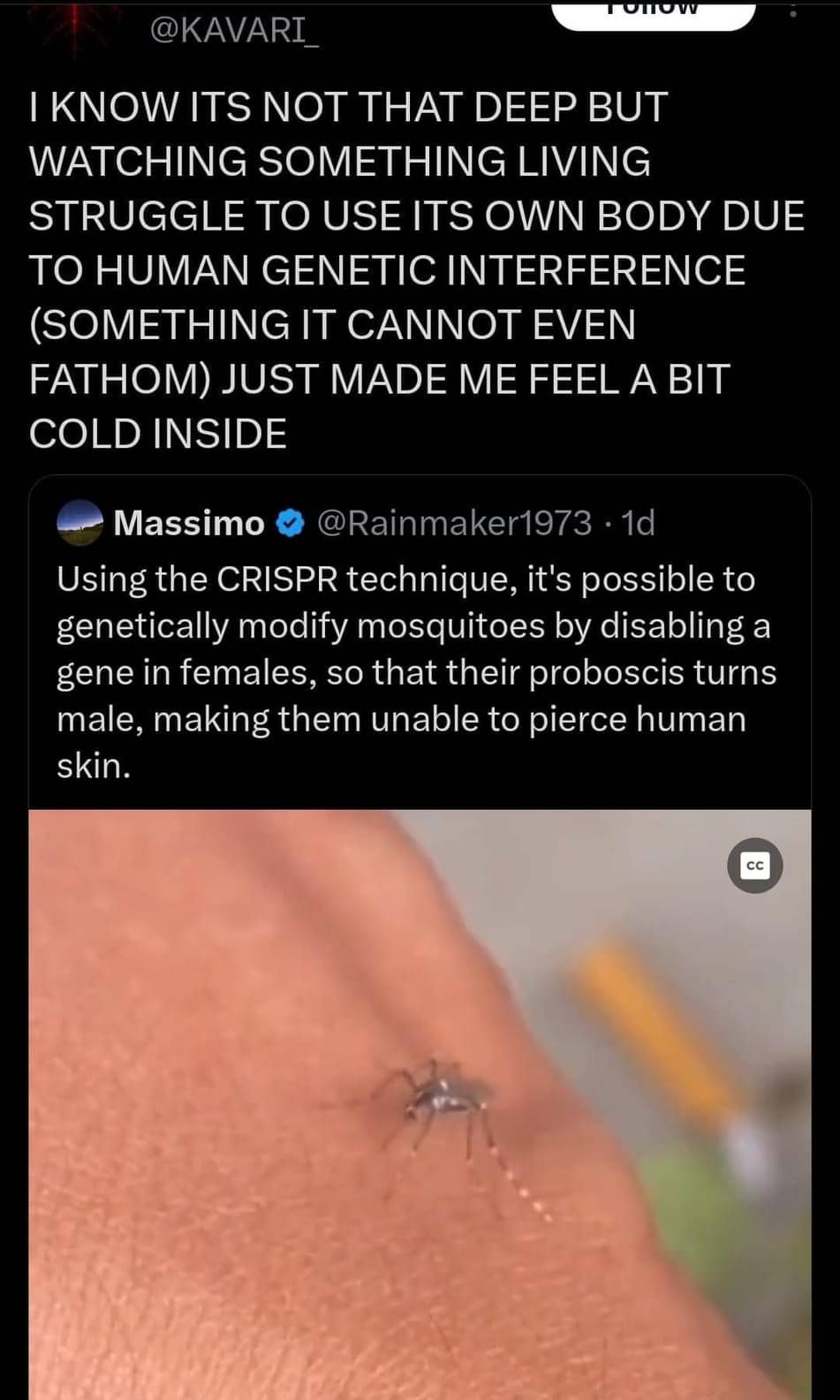this post was submitted on 14 Oct 2024
750 points (97.1% liked)
Science Memes
12359 readers
1966 users here now
Welcome to c/science_memes @ Mander.xyz!
A place for majestic STEMLORD peacocking, as well as memes about the realities of working in a lab.

Rules
- Don't throw mud. Behave like an intellectual and remember the human.
- Keep it rooted (on topic).
- No spam.
- Infographics welcome, get schooled.
This is a science community. We use the Dawkins definition of meme.
Research Committee
Other Mander Communities
Science and Research
Biology and Life Sciences
- [email protected]
- [email protected]
- [email protected]
- [email protected]
- [email protected]
- [email protected]
- [email protected]
- [email protected]
- [email protected]
- [email protected]
- [email protected]
- [email protected]
- [email protected]
- [email protected]
- [email protected]
- [email protected]
- [email protected]
- [email protected]
- [email protected]
- [email protected]
- [email protected]
- [email protected]
- [email protected]
- [email protected]
- !reptiles and [email protected]
Physical Sciences
- [email protected]
- [email protected]
- [email protected]
- [email protected]
- [email protected]
- [email protected]
- [email protected]
- [email protected]
- [email protected]
Humanities and Social Sciences
Practical and Applied Sciences
- !exercise-and [email protected]
- [email protected]
- !self [email protected]
- [email protected]
- [email protected]
- [email protected]
Memes
Miscellaneous
founded 2 years ago
MODERATORS
you are viewing a single comment's thread
view the rest of the comments
view the rest of the comments

I get the concern, and it's a good concern to have when you're talking about what would be such a huge shift in so many ecosystems...
...buuuuuut...
I have to believe this change would happen slowly... mosquitoes wouldn't just go extinct over a holiday weekend. It'd take years, if not decades, of dedication to the eradication strategy and even then, certain populations may prove immune to the best efforts of science.
That being said, even if it did execute as planned, I feel like the gradual decline of the mosquito would coincide with a gradual increase in other invertebrate species that would fill that niche. So as mosquito populations slowly declined in a local pond or creek, you'd see things like say chironomids (midges) thriving with the reduced competition for habitat, and the fish that ate mosquito larvae replacing that part of their diet with more midges.
Not saying there couldn't be other complications, but I don't think we'd see results fast enough that we'd end up with a broken link of the food chain leading to ecosystem collapse.